AUFRANDE Annual Event 2024
AUFRANDE held its first Annual Event from 18 to 22 November 2024 at the École Centrale de Lyon in Écully, France. Doctoral candidates representing 16 different countries and their supervisors based at French and Australian universities had the opportunity to get to know each other for the first time as a group. The program featured sessions aimed at connecting researchers with each other and practical training activities for developing the doctoral candidates’ knowledge and overall research skills.
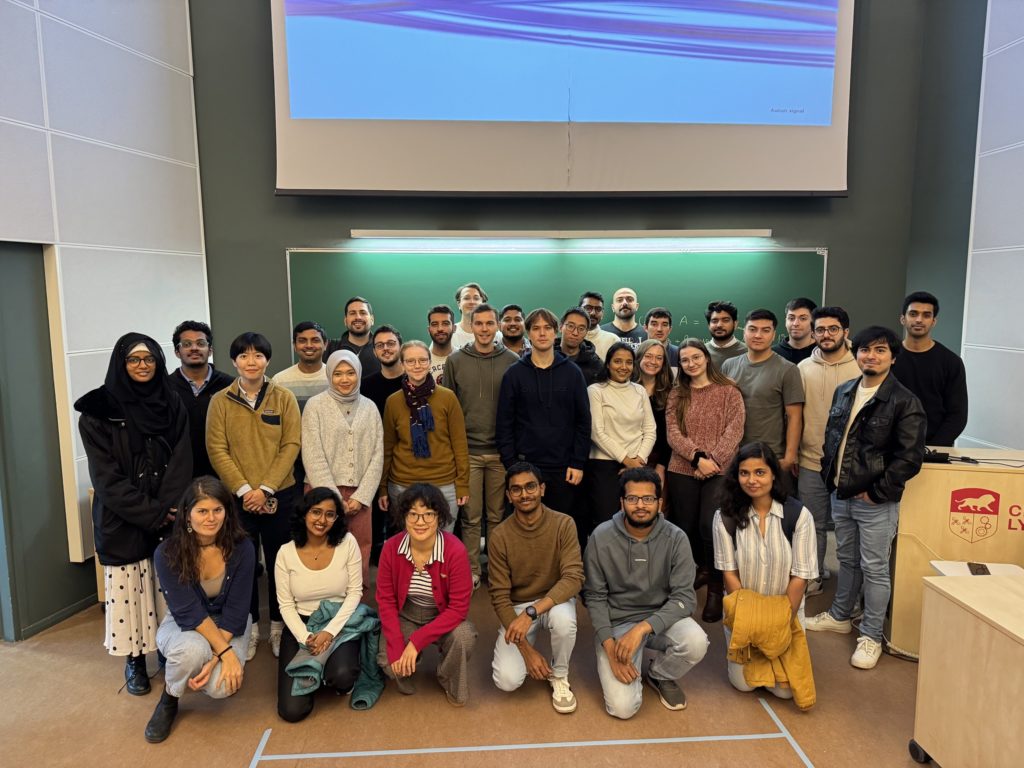
Day 1
The first days were dedicated to the Consortium Meeting, starting with an icebreaker session organised by the doctoral candidates, where they had the opportunity to discuss their experience within AUFRANDE and challenges they may have faced. Following this session, Christophe Corre, Director of Research and Innovation at Ecole Centrale de Lyon, welcomed all participants before the AUFRANDE Project Manager, Pauline Rasera from RMIT Europe, gave an overview of the Program, highlighting the main achievements as well as upcoming milestones, followed by open discussion.
Each candidate was then invited to introduce their research in a Three Minute Thesis (3MT)-like format, and to address feedback or questions from colleagues or supervisors. The variety of the topics and disciplines, from marine ecology to aerospace engineering, showed the potential of the AUFRANDE Program to contribute to a range of academic and industry areas.
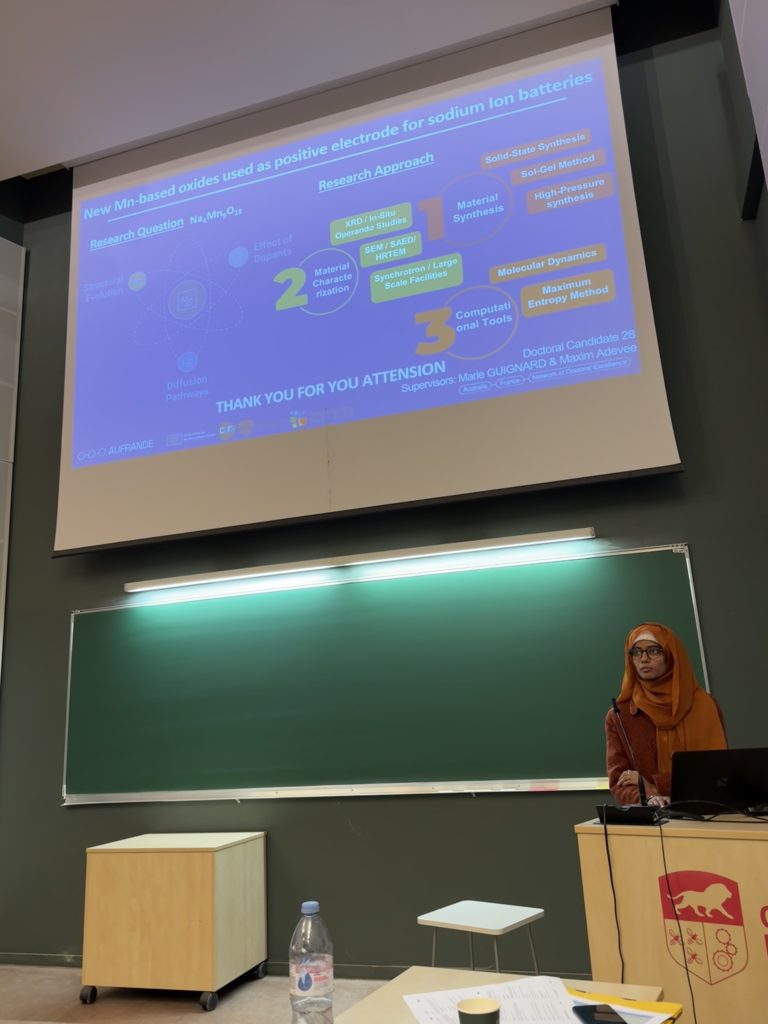
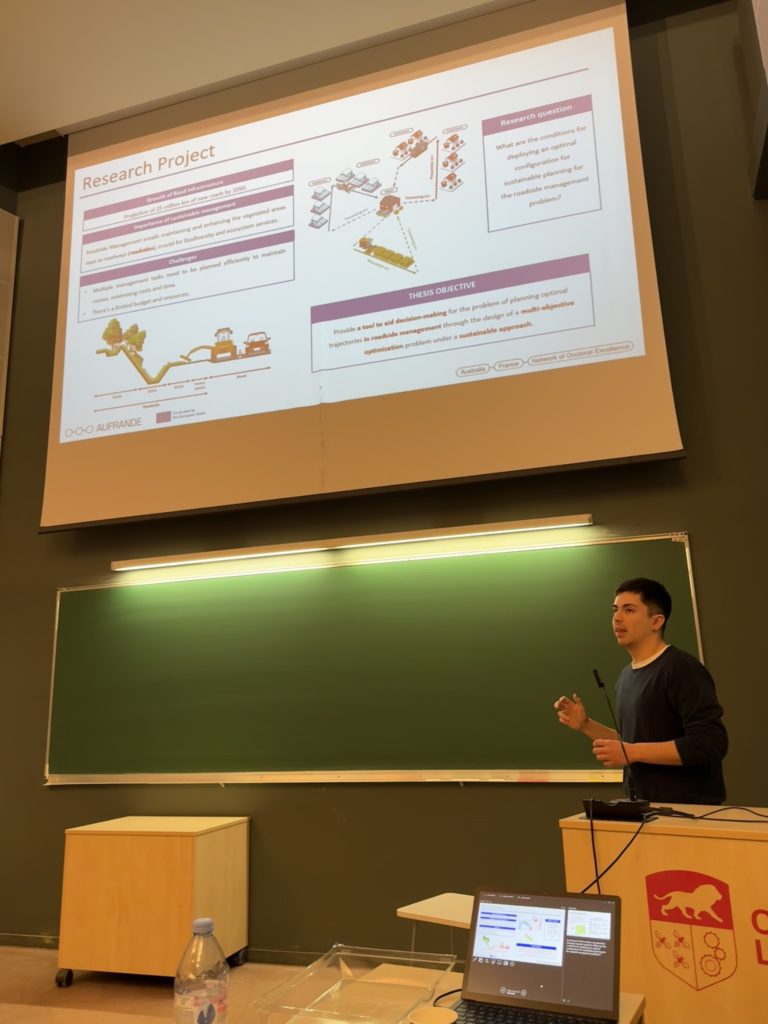
In the evening, doctoral candidates and supervisors were invited to a dinner cruise on the Rhône and Saône rivers. This allowed participants to network, admire the views and savour the local cuisine.

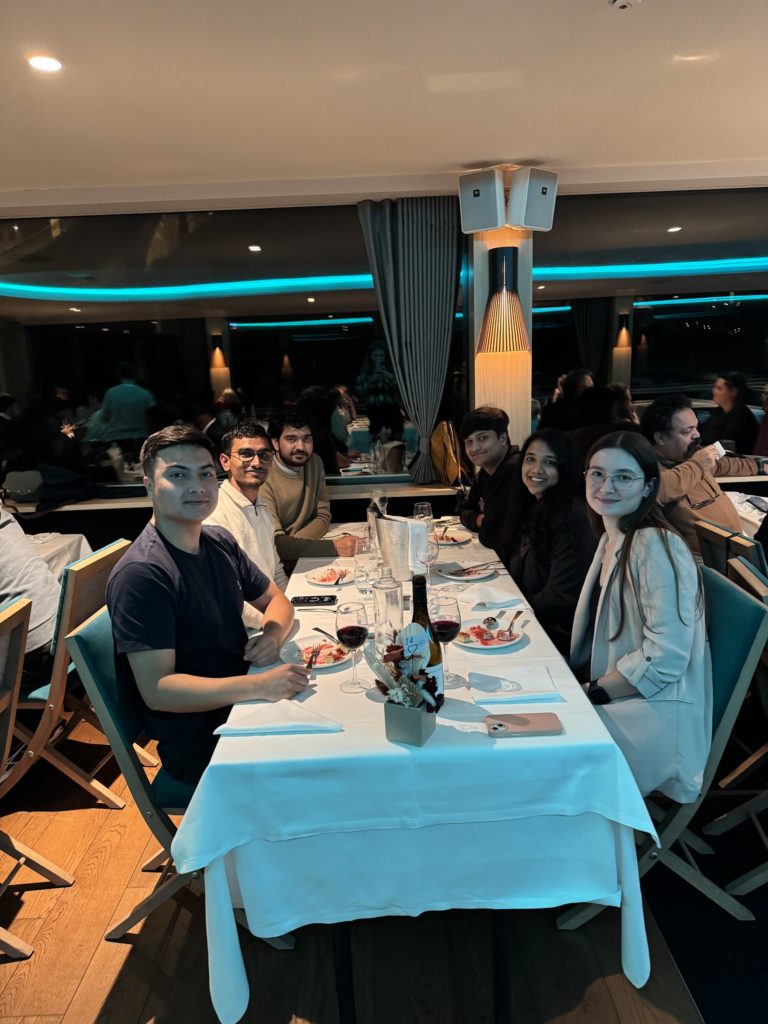
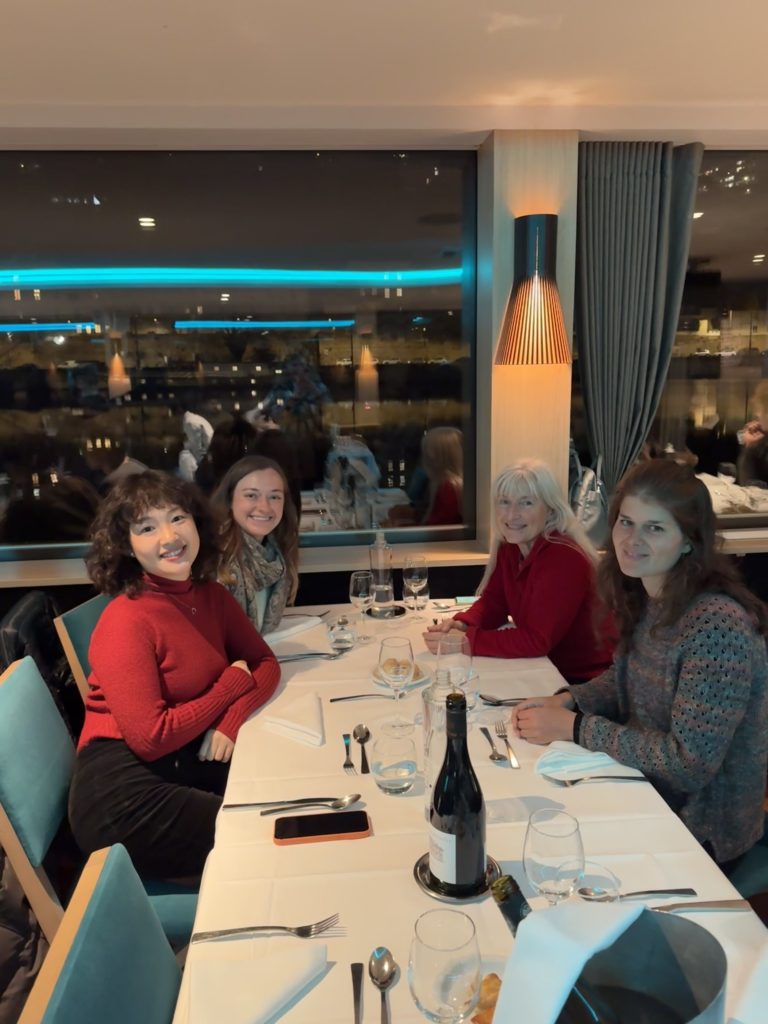
Day 2
The Consortium Meeting continued on the second day, with more 3MT presentations, insights on the Communication and Dissemination aspects of the Program, presented by Julia Klajnowska, Research Communications Assistant at RMIT Europe, and open discussions.
Researchers working in the same field then gathered in focus groups to explore collaboration within and beyond AUFRANDE. Each group discussed and shared their research interests intending to inspire new partnerships, encourage interdisciplinary exchange, and strengthen networks among peers.
During the afternoon, three parallel sessions were organised.
Half of the cohort participated in a training session on “Building an impactful online presence: a social media guide for scientific professionals” facilitated by Julia Klajnowska. The aim was to guide doctoral candidates on how to use social media to promote their academic research, achievements and other related activities. During the session, the researchers worked in groups on a practical task that involved writing a LinkedIn post to promote a specific project. They then received feedback from the facilitator and other groups. To end the session, they received tips on creating engaging posts and building their online reputation on social media.
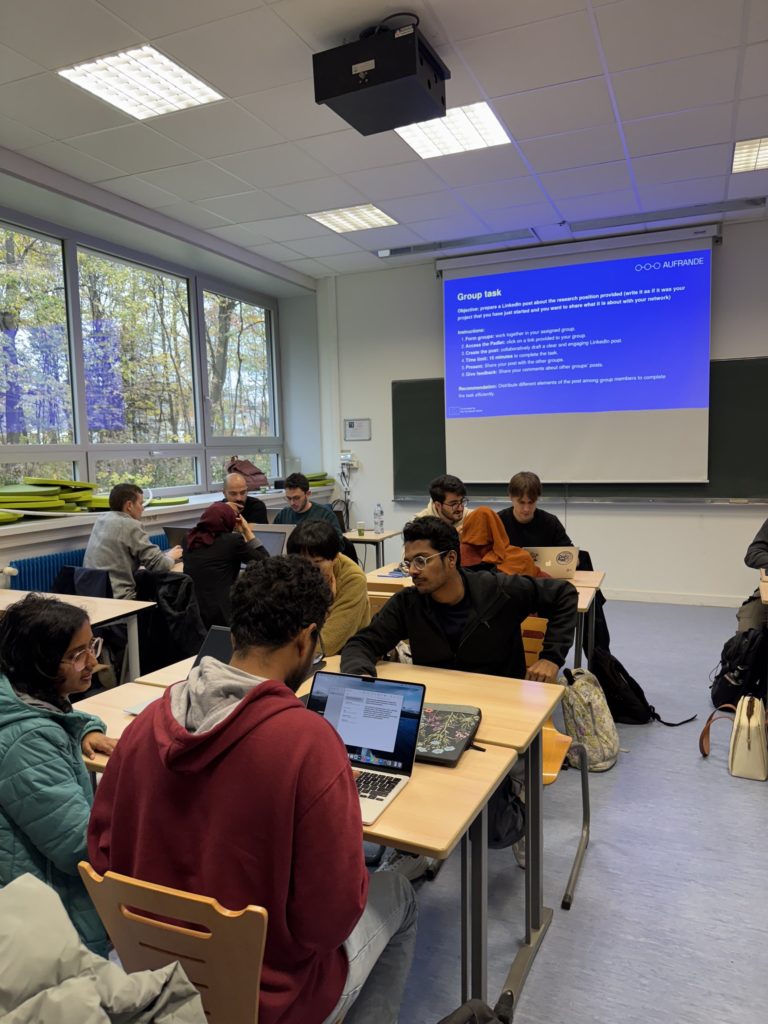
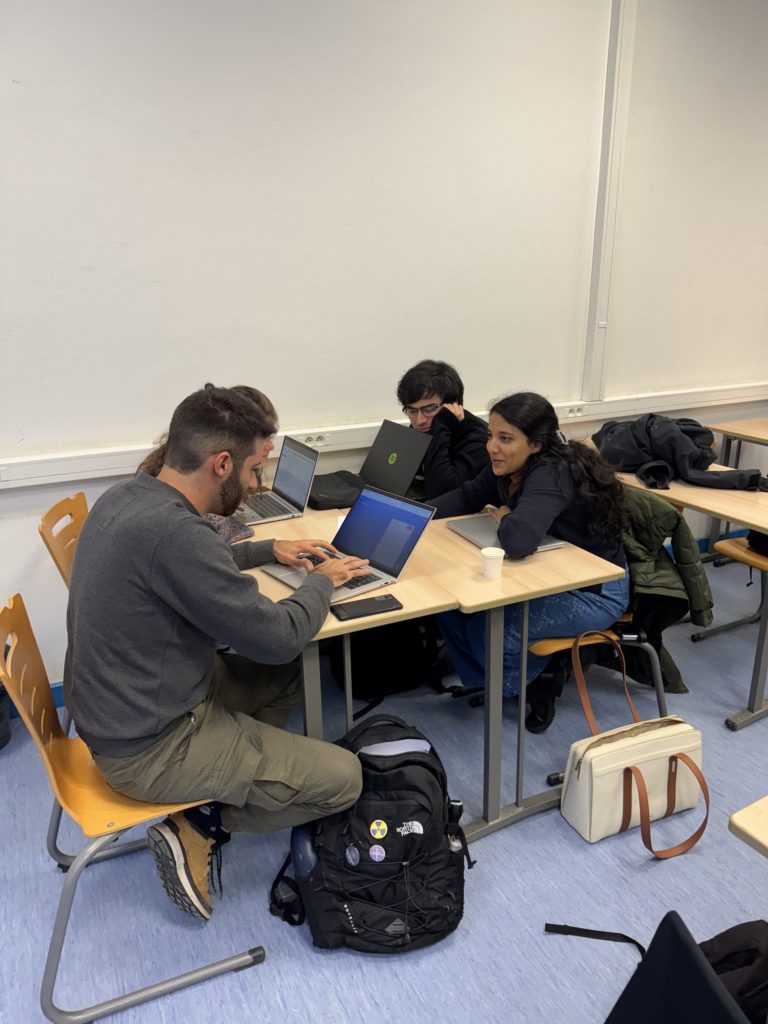
The other doctoral candidates met the Project Manager to discuss the Program expectations, available resources and support mechanisms, and to raise questions.
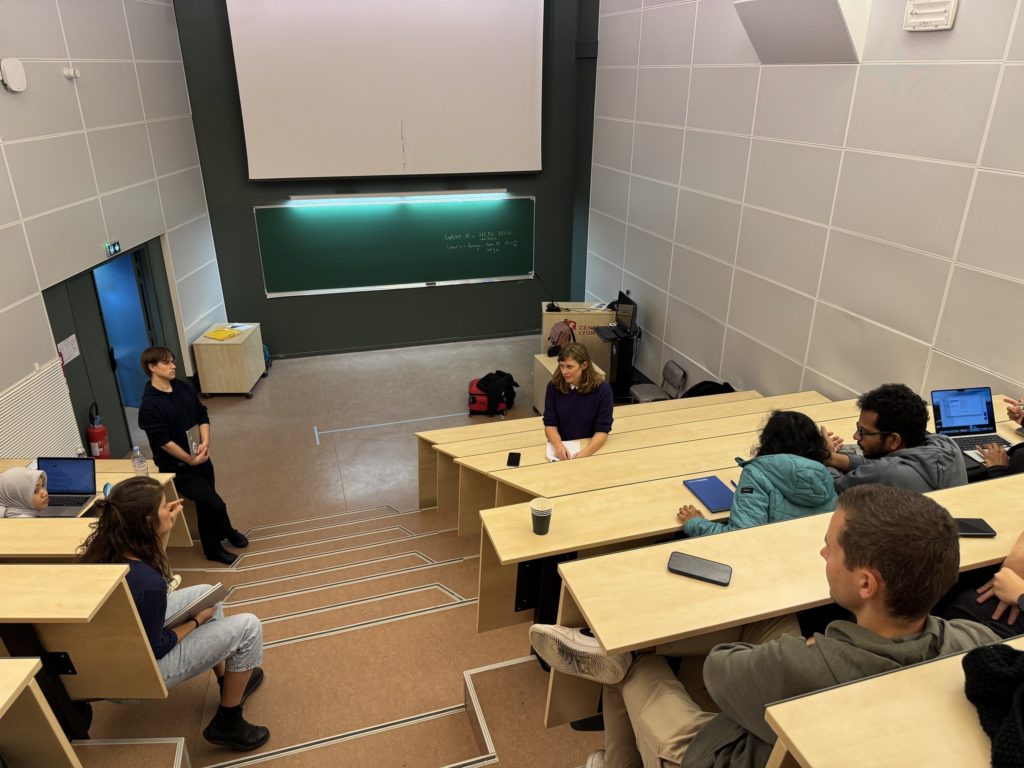
In parallel, the supervisors met to share insights and exchange best practices in supervision. This session was facilitated by Arnan Mitchell, Director of Micro Nano Research Facility at RMIT University, and Christian Grillet, CNRS Researcher at INL – EC Lyon, supervisors of several AUFRANDE doctoral candidates.
After these sessions, participants got back together for a “Roundtable on the use of Artificial Intelligence in research projects”. Alexis Giauque, Associate Professor at LMFA, EC Lyon, Kavé Salamatian, Professor at Université Savoie Mont Blanc, and Françoise Sailhan, Professor at IMT Atlantique facilitated the discussion by asking open questions and sharing their insights. The doctoral candidates and supervisors also had the chance to exchange their points of view, tips, or reservations on the use of AI for research purposes, leading to an interesting and participative conversation. The day concluded with visits to the Laboratoire de Mécanique des Fluides et d’Acoustique (LMFA – UMR 5509) and the Institut des Nanotechnologies de Lyon (INL – UMR 5270), two of the laboratories of EC Lyon where local students demonstrated the scientific experiments they have been working on.
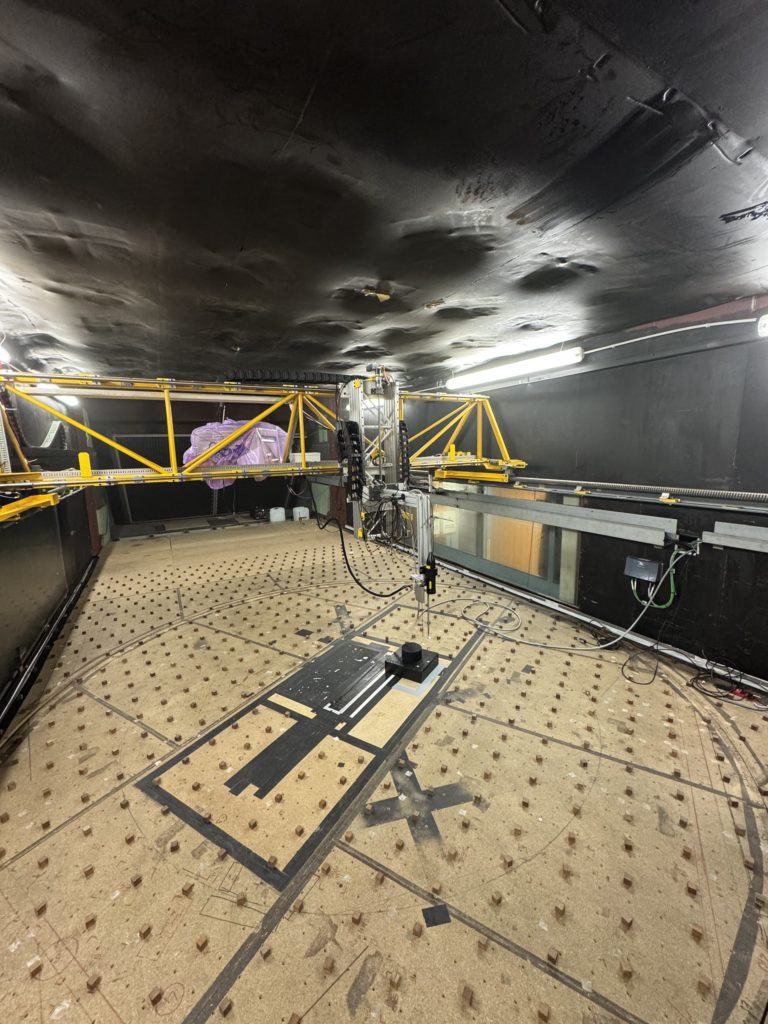
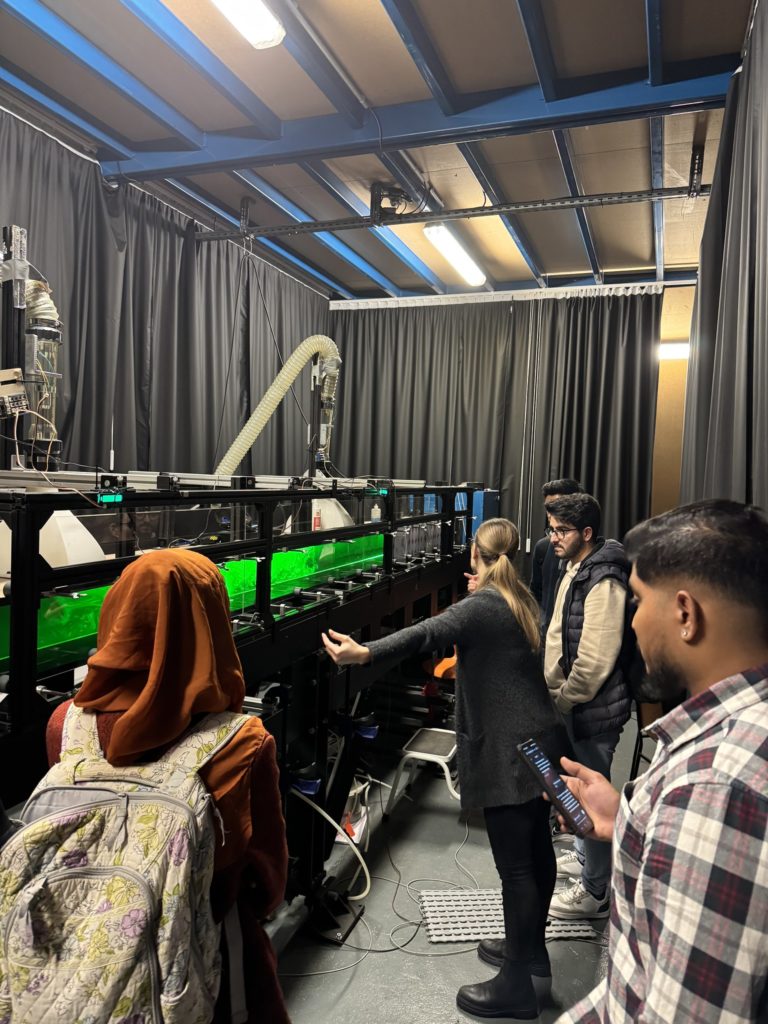
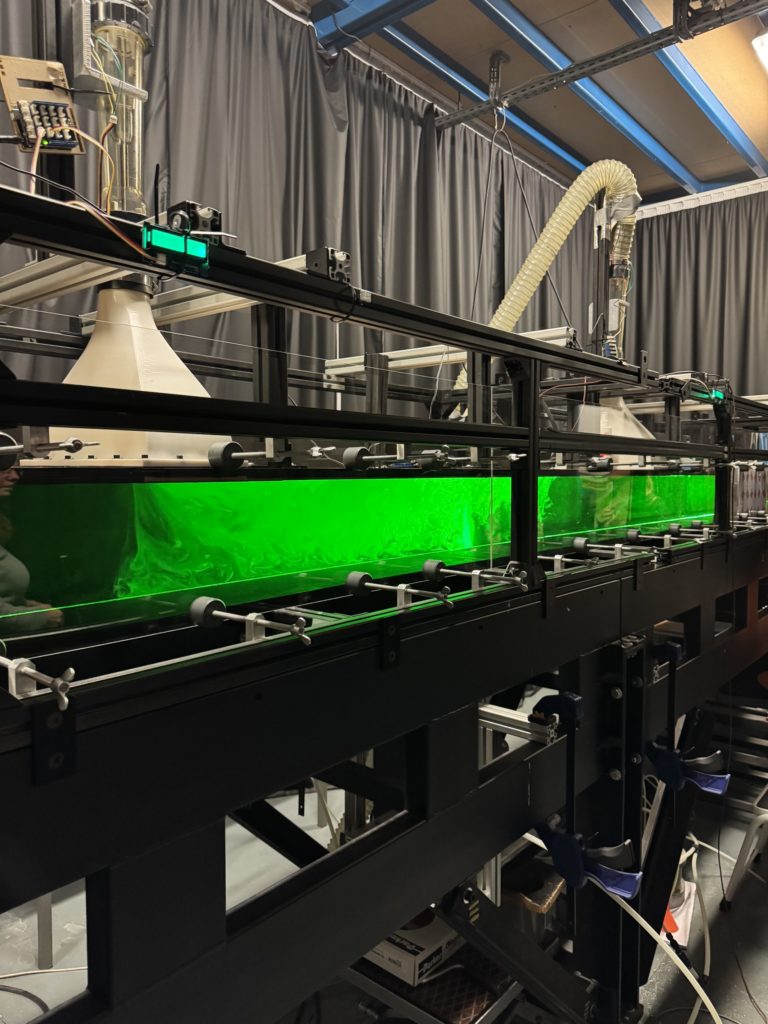
Day 3
On the third day, Rémy Cadoret, Intellectual Property Manager at PULSALYS SATT LYON, met with the doctoral candidates to talk about innovation and entrepreneurship. The goal of this training session was to raise awareness of the value of research results and learn more about the exploitation and promotion of research results or products within different economic and social sectors.
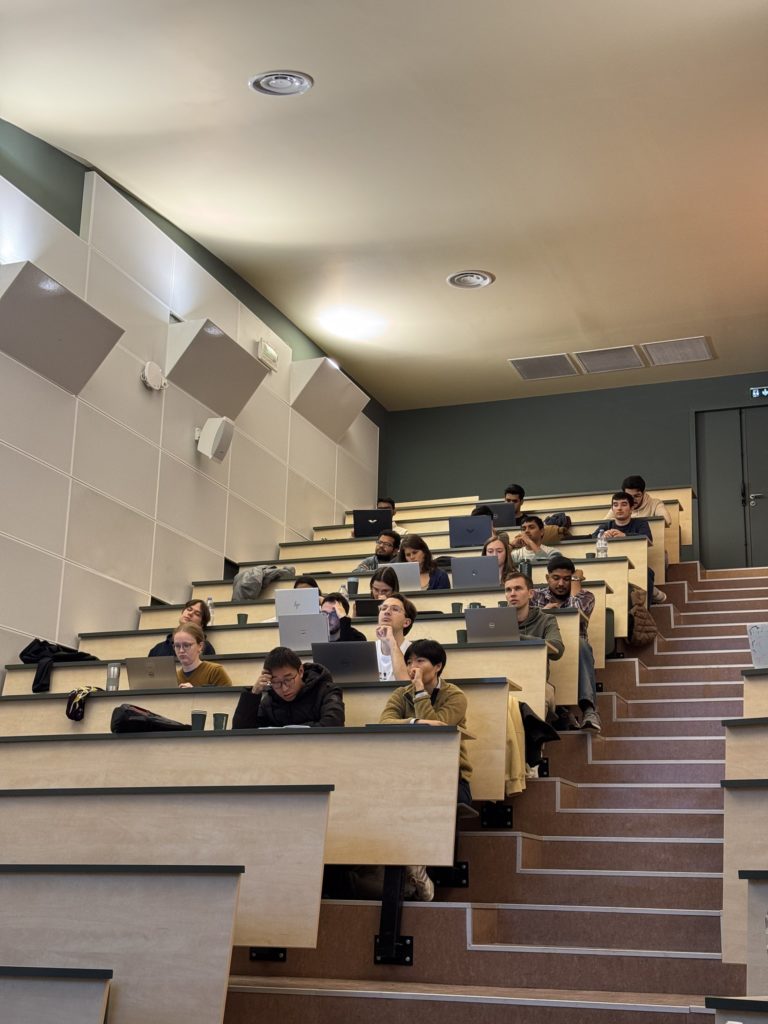
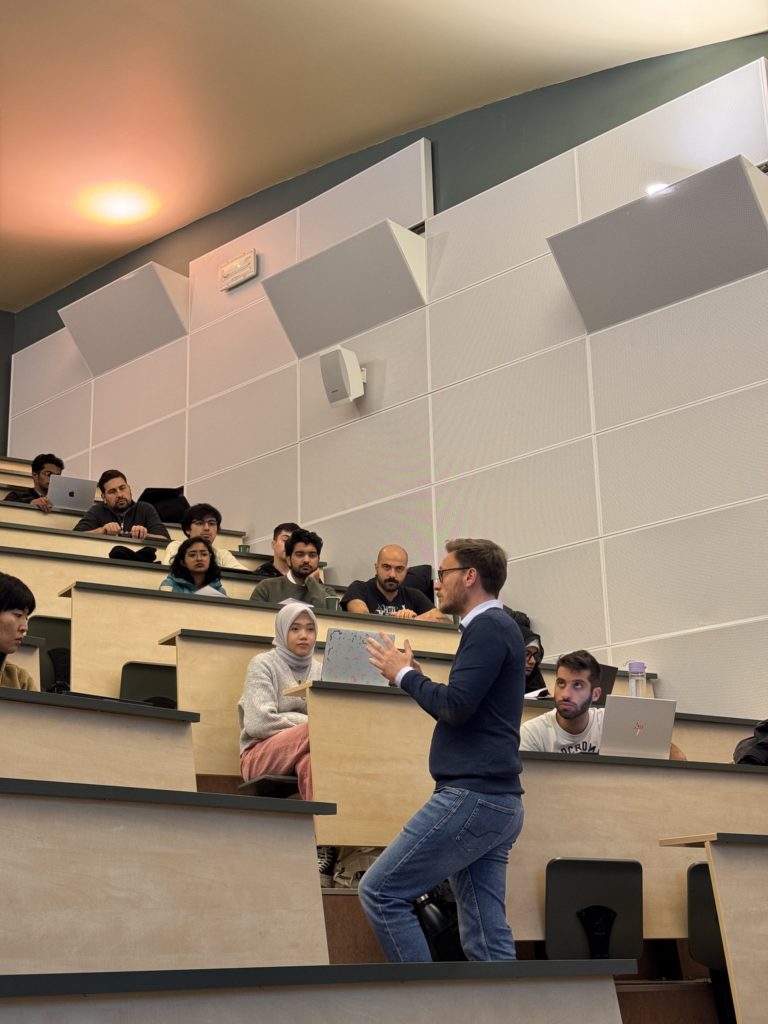
Another useful session, “Wellbeing During Doctoral Studies: An Evidence-Based Review of Challenges and Associated Solutions”, was delivered by Stéphanie Gauttier, Assistant Professor at Grenoble Ecole de Management and Vice-Chair of the ReMO COST Action Researcher Mental Health. She shared her insights on the impact of mental health challenges during doctoral studies and discussed strategic solutions to address them.
This day, fellows also learned about the Marie Curie Alumni Association and the MCAA France Chapter (MCAA), an international non-profit organisation established and supported by the European Commission with a bottom-up approach at its core. Hakim Ferria, European Affairs Manager at INSAVALOR, and a member of the MCAA board, spoke about the benefits of being part of this vibrant community that brings together researchers at all career stages from all disciplines who profit or have profited from MSCA funding. The MCAA is not only a researchers’ association but an alumni community beyond research that encourages networking and cooperation and acts as a forum for debate between former and current researchers and society.
Day 4
The fourth day started with the “Open Science and bibliographic research” session facilitated by Nicolas Jardin and Stéphanie Lamaison from the Bibliothèque Michel Serres, EC Lyon, Anne Cadiou, CNRS research engineer at LMFA, and Cyprien Caraco, from the library services at University Claude Bernard Lyon 1. Over the past two decades, Open Science has transformed from a researcher-led movement into a national strategy in France, supported by the Ministry of Higher Education and Research, becoming essential for reproducibility and effectiveness in research practices. Doctoral candidates play a key role in this transition, and a strong understanding of bibliographic research tools is crucial for navigating the vast landscape of scientific publications. Hence, this session combined training and practical workshops on Open Science practices and bibliographic research. The main objectives were to identify effective scientific literature search strategies, master search methods, learn about the definition and components of Open Science, and discover publication channels such as predatory journals and academic social networks.
Later that day, Andrea Eckersley, Associate Professor from the School of Graduate Research at RMIT University, gave a workshop on “How to write a great abstract”. She explained the role and purpose of abstract writing, identifying the key components and how to adopt techniques to assist with writing them. She pointed out that a good abstract is not just short; it is persuasive.
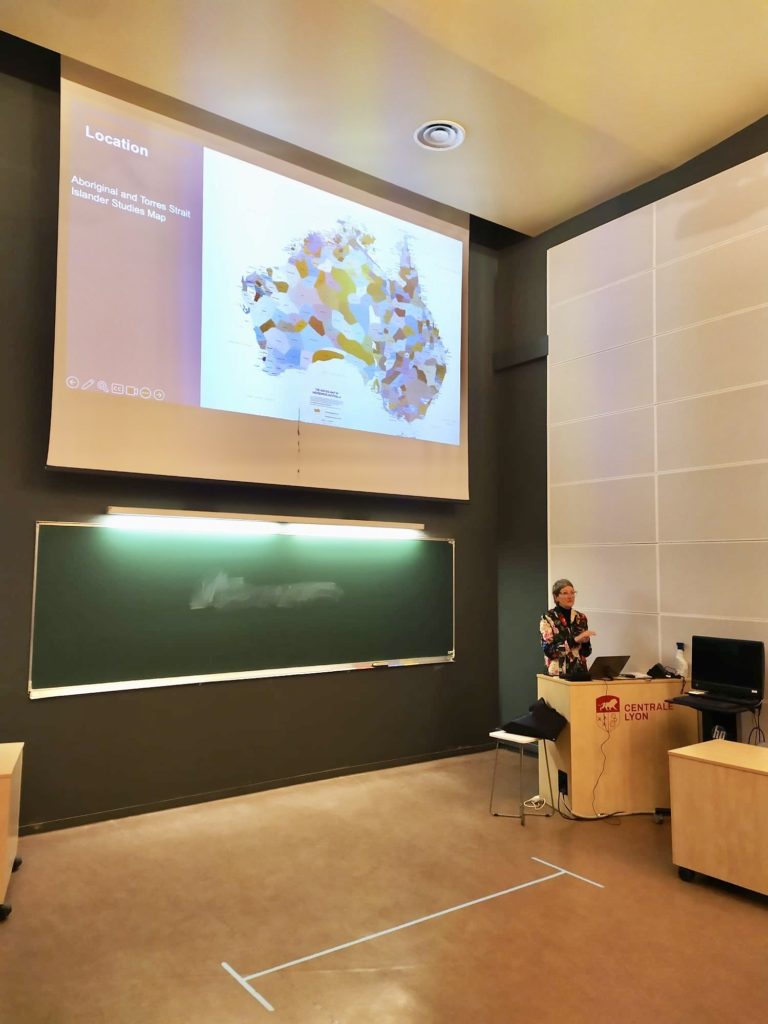
Andrea also facilitated the session “Prepare your secondment” to help fellows understand the typical PhD journey in Australia, based on examples from RMIT University, and shared tips on how to get ready for their own secondments.
Day 5
The last day of the event featured a workshop called “Designing a career plan” that provided insights on how to explore the job market for PhD researchers using networking techniques, and how to develop a career plan tailored to their own personality, professional ambitions, and available opportunities. Dominika Foretek, International Cooperation and Training Officer at Association Bernard Gregory, explained the key concepts and methods when constructing a career plan. This session also included an individual exercise that aimed to reflect on past roles, skills, and tastes, followed by group discussion.
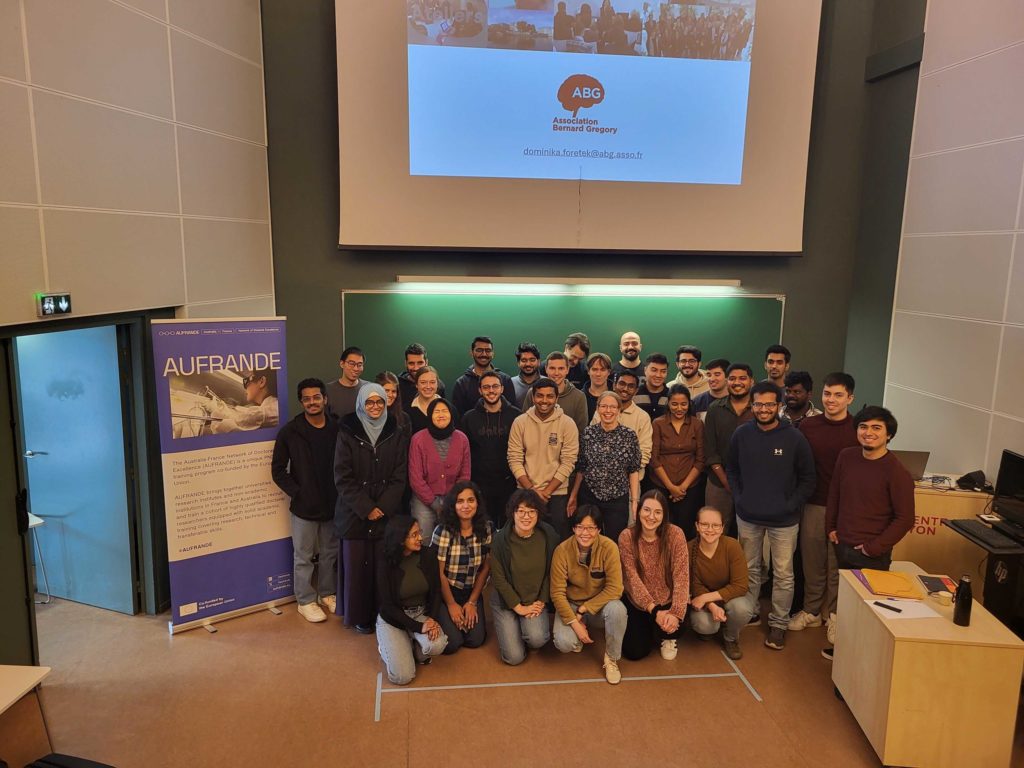
Last but not least, the AUFRANDE thematic task forces were launched. These groups, which gather doctoral candidates and some supervisors around a specific topic, have a triple objective: to involve the researchers in core aspects of the Program, to connect researchers from different fields or locations, and to develop transferable skills. The proposed task forces include: communication, outreach, professional development, data management, industry engagement, wellbeing, and sustainability.
Thanks to the networking opportunities provided by this event, we are confident in a promising future for the AUFRANDE Program.
We extend our gratitude to all the doctoral candidates, supervisors, and facilitators who joined us in Lyon and contributed to enhancing the Program’s development.